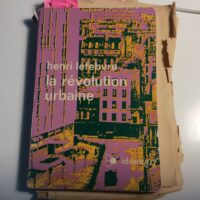-
A Life Full Circle: Gramsci in Sardinia
Andy Merrifield went to Sardinia searching for Gramsci’s phantom. We can’t reinvent Gramsci’s past, shouldn’t reinvent that past. But we might keep his memory alive, find solidarity in that memory, keep him free from any renaming, from the encyclopedia and the axe. His phantom, his death mask, can haunt our present and our future. To remember what happened to him is never to forget his dark times, the dark times that might well threaten us again.
-
Gramsci and his friend “S”
Piero and Nino exchanged ideas, criticized one another, encouraged each other; Nino often used Piero, seven-years his junior, as an intellectual sounding board, as a trusted interlocutor, asking for advice, for suggestions, whether his friend could chase up a source, a book or journal, a magazine or newspaper article, could he confirm this fact and that, find out some precise detail about Croce’s historical studies, if Machiavelli ever wrote anything about economics, or David Ricardo about philosophy.
-
Gramsci’s animality
Prison Notebooks sets the tone with “Animality and Industrialism,” Gramsci’s original work-in-progress header for the section he’d eventually label “Americanism and Fordism.”
-
A rose for Gramsci
Ninety-seven years back, via Giovanni Battista Morgagni, number 25, was a more modest lodging house, home of a quietly discreet pensionante called Antonio Gramsci.
-
John Berger and Gramsci in Rome: Personal Reflections
“A week or so on, John Berger was still with me, there in spirit. Or, better, I was still with him. When in Rome, I told myself…well, what better thing to do than to visit Gramsci, the great Marxist, whose grave lies in the city’s ‘Non-Catholic Cemetery’ in Testaccio.”
-
DADA NEW YEAR: Tristan Tzara’s Boom, Boom, Boom
I know I’m not the only one thinking that our world has lost its mind. It’s not easy being some relatively sane person nowadays. At the best of times, politics is bankrupt. At its worst, it’s toxic, dominated by demagogues, liars and cheats. Their falsehoods fly wholesale, rarely disgruntling masses of people, let alone damaging a demagogue’s political career.
-
Lefebvre and Althusser: Reinterpreting Marxist Humanism and Anti-Humanism
Since the October Revolution, Marxism has experienced almost as many crises as capitalism itself. Meltdowns of capitalism usually come as little surprise to savvy Marxist theorists but economic crises are one thing; economic crisis plus a global pandemic is something else again, beyond an everyday capitalist norm, more akin to the political-economy of wartime. Pandemic, like war, threatens not only life and limb, but also solidarity and tender acts of human togetherness.
-
Marx on technology
The longest chapter in Capital is the fifteenth, on “Machinery and Large-Scale Industry.”
-
Lefebvre in the Age of COVID
COVID has upended urban life as we once knew it. But it intensified already existing pathologies, those contaminating “normal,” pre-pandemic life. Our present urban reality is one of the de-encounter, a thinning down rather than thickening up, the dispersion and dilution of city life, its fear and loathing.
-
Beyond Plague Urbanism
Over the centuries, humans have survived tragedy through the incredible stoicism of not moving, of standing one’s ground, of resisting, of engaging in tremendous creativity. Perhaps we can use the time alone to think collectively, to reflect together on how we might reconstruct the public realm of our cities.
-
Marx, dead and alive
“It’s really interesting, isn’t it, how certain people would want to go to such lengths to smash Marx. Do they really think they’re going to destroy the ideas by destroying the grave? …people feel so afraid of Marx. Is there any other intellectual throughout history that is like that?”
-
Marx in the Museum
One of Marx’s brightest concepts, perhaps his profoundest dialectical construct in Capital, is the “fetishism of commodities.” It emphasizes something very important about the foggy world of appearances and how can forget what lies within, behind what is immediately apparent. We can read it as a parable in which Marx tries to bring to life (and light) the “secret” of the ostensibly trivial commodity, the genie that exists within the magic bottle.
-
Notes on Marx’s “General Law of Capitalist Accumulation”
Chapter 25 of Karl Marx’s, Capital, vol. 1 (“The General Law of Capitalist Accumulation”), not only explains the working conditions of the world’s peoples today; it also explains the conditions of our whole existence. Marx’s general law is nothing less than the lever upon which all our lives now pivot.












